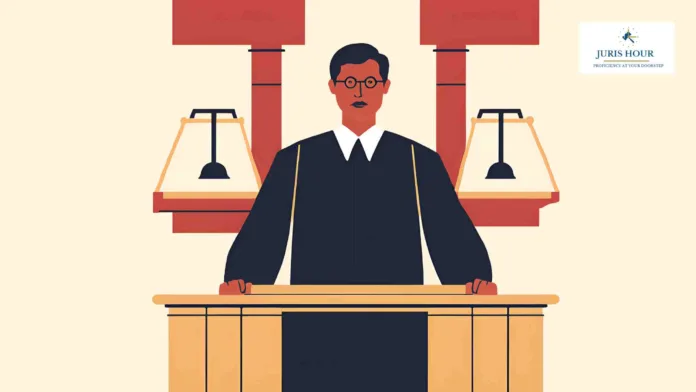If you’re a practicing tax lawyer, courtroom etiquette isn’t just about manners—it’s a reflection of your credibility, competence, and respect for the judiciary. Whether you’re appearing before the Hon’ble High Court or a tax tribunal, following proper courtroom conduct can set you apart and strengthen your professional reputation.
Here’s a comprehensive guide to courtroom etiquette tailored for tax lawyers in India:
1. Dress with Dignity
Your attire is your first impression. Tax lawyers must adhere to formal court dress codes:
- For men: Black coat, white shirt, black tie or bands, and dark trousers.
- For women: Black coat over a white blouse or saree/suit in muted tones with white bands.
Even on non-hearing days, opt for neat, professional clothing.
2. Arrive Early, Stay Alert
Always enter the courtroom a few minutes before proceedings begin. Use this time to:
- Observe judicial temperaments
- Understand the Bench’s priorities
- Stay updated on courtroom decorum
3. Bow to the Bench
When entering or exiting a courtroom in session, bow respectfully toward the Bench. This silent gesture honors the institution of justice—not individuals.
4. Address the Bench Appropriately
Always use the correct honorifics:
- “My Lord” / “Your Lordship” – High Courts
- “Your Honour” / “Sir/Madam” – Tribunals (as per local convention)
Never interrupt or speak over the Bench.
5. Wait for Your Turn
When your matter is called:
- Rise and announce your appearance
- Wait for the preceding matter to conclude
- Do not hover at the podium before time
6. Introduce Yourself Formally
Use a respectful introduction:
“May it please Your Lordships, I appear for the petitioner/respondent/appellant, [Your Full Name].”
If you’re appearing with a senior, let them introduce first.
7. Keep Submissions Crisp
Judges appreciate brevity. Avoid:
- Long-winded readings
- Irrelevant details
Focus sharply on core issues—especially in complex tax matters.
8. Never Argue with the Bench
Disagree gracefully. If the Bench isn’t convinced:
- Acknowledge their view
- Seek brief clarification time
- Never challenge or show frustration
9. Organize Briefs and Citations
Preparation is key:
- Ensure your files are structured
- Anticipate Bench queries
- Carry extra copies of judgments cited for court and opposing counsel
10. Maintain Decorum
Courtrooms demand composure:
- No whispering or side-talk
- Keep phones on silent
- Avoid visible expressions of emotion—positive or negative
11. Respect Opposing Counsel
Professionalism is paramount:
- Never interrupt
- Rebut only when permitted
- Avoid personal remarks at all costs
12. Never Misstate Law or Facts
Your reputation as a lawyer hinges on integrity. Never:
- Misquote statutes or precedents
- Bluff on facts
If unsure, admit it. It reflects maturity, not weakness.
13. Respect Court Staff
Court clerks, ushers, and stenographers are essential to justice delivery. Treat them courteously—they often help navigate procedural hurdles.

